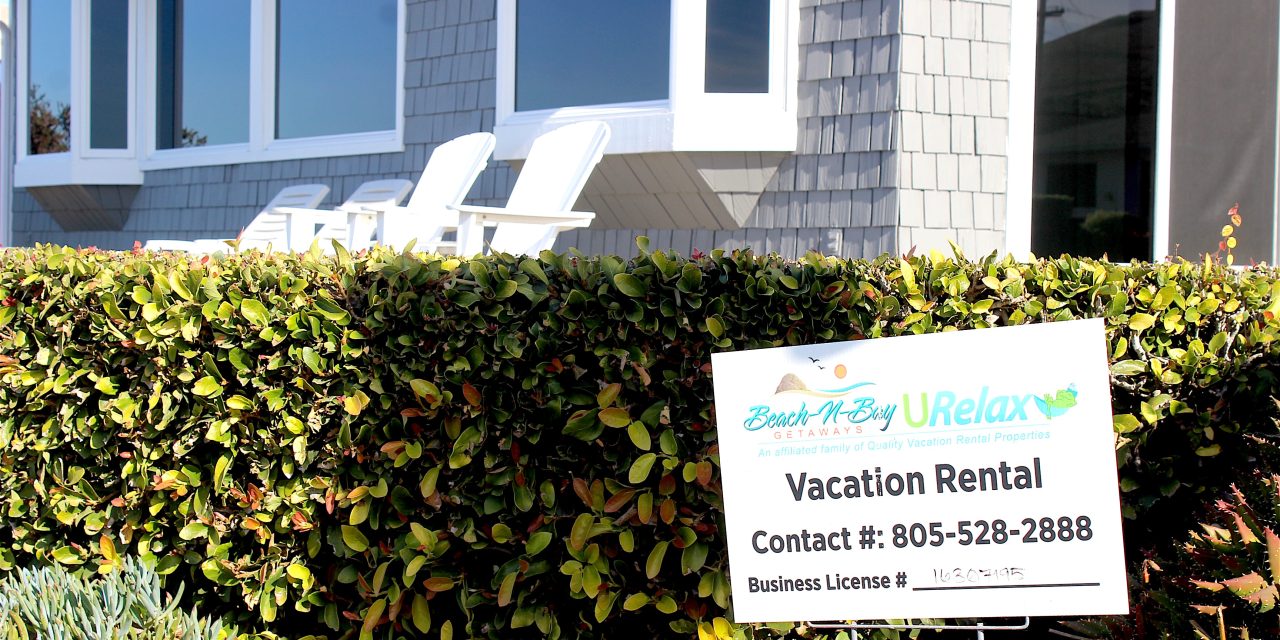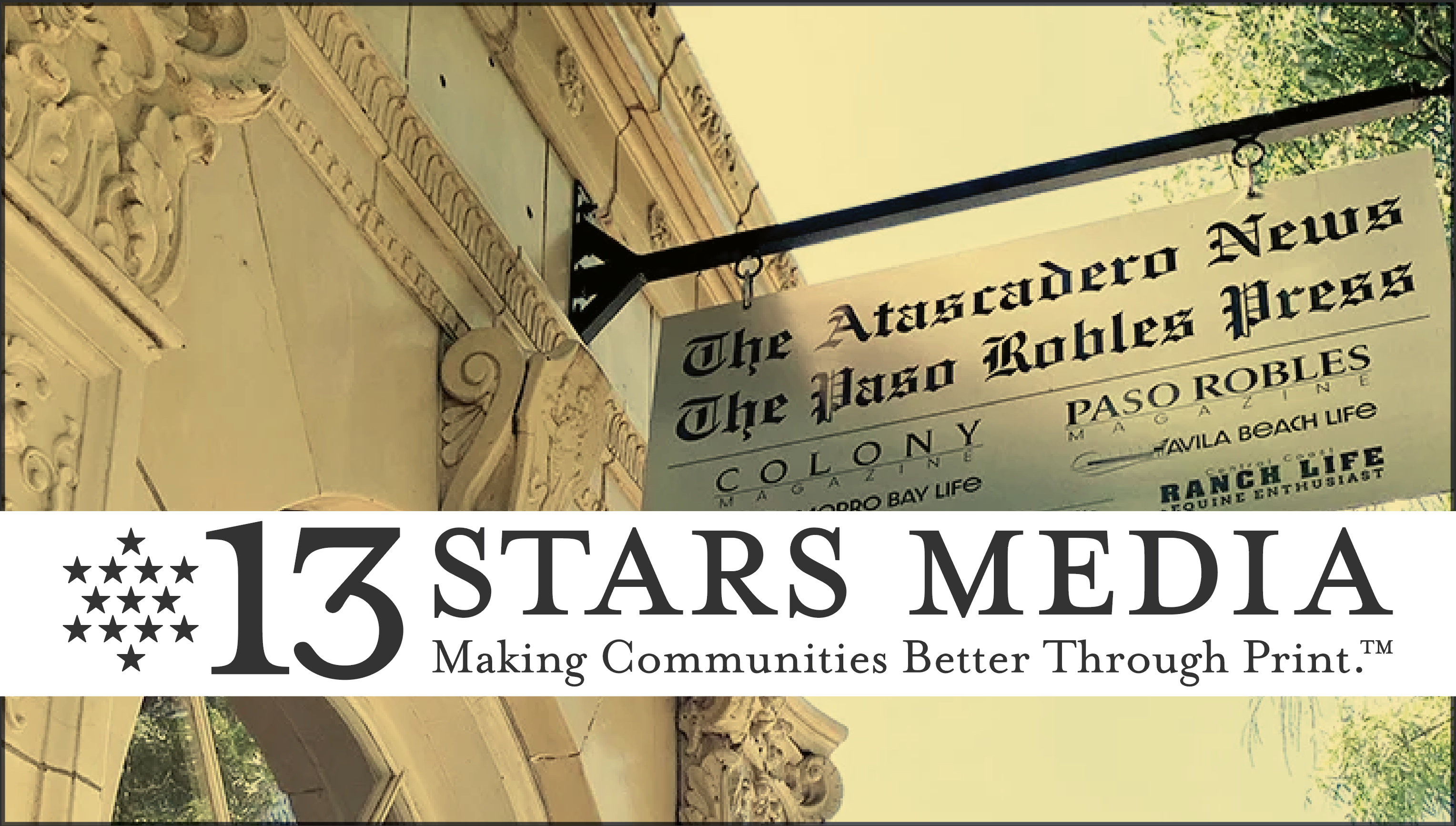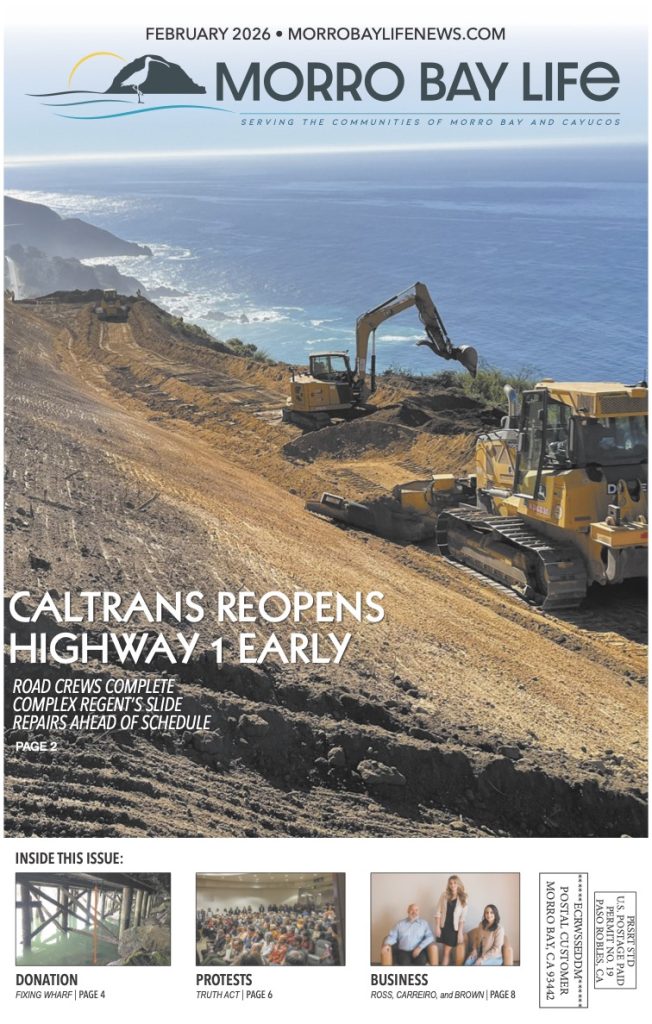City refines oversight of vacation rentals, enforces compliance, and seeks tax revenue from booming market
The City of Morro Bay’s efforts to wrangle the growing trend of homes being used as mini motels or vacation rentals continue to be refined, according to a recent report from the planning department to the City Council.
Vacation rentals or “short-term rentals” (STRs) come in two main varieties — full home rentals and home-share rentals — the main difference being with true STRs, the owner is not present, but with home-shares, the owner is on-site.
According to the report from Community Development Director Airlin Singewald, there are currently some 173 “full-home” rentals; nine “commercial” VRs; and 11 home-share rentals, with a total of 193 permits. But those numbers could be off base. Singewald said, “the city does not have reliable data on the number and type of permitted STRs in the city,” but he added they are not approving any new permit applications right now.
“The city has not approved any new STR permits, business licenses, or TOT accounts for short-term rentals in the past year,” Singewald said. So the numbers for STRs currently in use date back to January 2024, he explained.
“The actual numbers today, are likely lower, since it’s likely some properties have sold (STR permits do not transfer upon sale) and since some permits may have expired,” Singewald said. “This information will be determined over the next year as the department continues to implement the STR Permit Implementation Program.” One thing they do know is that there are currently 186 properties on a waiting list the city established with the ordinance.
They also don’t know for sure how many people are renting out their homes on the sly, without benefit of a permit.
“The City contracted with HdL to utilize a service by Deckard Technologies to identify all properties in the city that are advertising STRs on online hosting platforms,” Singewald said. “The department is able to compare these results to the city’s STR permit records, to identify illegally operating STRs.”
Unfortunately, or perhaps fortunately, the initial searches for cheaters didn’t find any. “Working with Deckard Technologies, the City ran a search of online STR hosting platforms in September and November 2024,” Singewald said. “These searches did not identify any illegally operating STRs.”
The city plans to terminate its contract with Deckard Tech/HdL, which also runs the city’s business license and transient occupancy tax (TOT) programs, both of which permitted STRs must also obtain, in addition to the specific STR permit. Dropping HdL/Deckard will also end the pro-active enforcement on the STRs, Singewald said, so the City Council, if it wants to continue the STR crackdown, needs to hire another vendor, of which there are several auditing companies, or they could contract directly with Deckard and cut out HdL.
The proactive enforcement might work OK for permitting, but the STR Ordinance also has several provisions dealing with behavior and locations, among others. Those rules are complaint-driven, so if readers have a rowdy STR in their neighborhood, complaints to the city are available.
Among the most pressing issues for a city that’s always looking at tight budgets are the TOT taxes, which are the second highest revenue source for the city’s General Fund behind only property taxes. Singewald reported that in Fiscal Year 2022-23 TOT revenues was over $4.25 million, with STRs taking in $757,000 or about 18% of the total.
The next year, (FY 2023-24) TOT overall fell a bit to $4.4 million and STRs accounted for $707,000 or about 16%. Morro Bay’s TOT rate is 10% of the cost of a room night, but local motels, hotels, STRs, and B&Bs also pay into the local Tourism Business Improvement District (TBID) with an added 3%, and also pay a countywide BID tax of 1.5%. These BID taxes are used to promote the lodging industry in Morro Bay and SLO County as a whole. With TOT dropping in recent years, possibly a lingering downturn caused by the COVID pandemic, the effectiveness of these efforts could be waning. Under Morro Bay’s STR Ordinance, permitted rentals must pay a minimum of $500 in TOT, more if their actual receipts are higher. According to a report from HdL completed last September, “out of 194 permitted STRs, only 119 (61%) had paid the minimum $500 in TOT. As part of the STR Permit Implementation Program described above, the city will ensure that all STRs pay the required minimum TOT to keep their permit active,” Singewald said. The city has yet to conduct a TOT audit of the STRs. When it’s done this in past years with motels, hotels, and B&Bs, the shortfalls have been nominal. Such audits cost a lot of money to conduct, but despite not finding a lot of unpaid taxes, their value is also to keep lodging operators honest.
“The city could also assess back-owed TOT on illegally operating STRs,” Singewald said. “However, the goal of the city’s code enforcement efforts, including fines and citations, is to achieve compliance; not generate revenue.”
The city first passed its STR ordinance in October 2020, adopting it into the Municipal Codes (Sec. 17.30.220). As a new law in the Coastal Zone, the Coastal Commission had to approve it. While numerous coastal cities have adopted such ordinances, most with the intention to limit them, the Coastal Commission has been against too strict of ordinances and has refused any law that’s an outright ban. That’s because the Coastal Commission considers STRs, especially when the whole home is rented, to be “affordable” vacation accommodations. It took the Coastal Commission nearly a year before they approved the ordinance (September 2021). The ordinance was included in an update to the city’s Local Coastal Program.
The city now has something called a “STR Permit Implementation Plan,” with two main parts — requiring all permitted STRs to obtain an STR permit that effectively renews their existing permit; and, once all these are completed, the city plans to process new STR permits off the extensive waiting list.
As for enforcement, the city plans to continue with its current efforts, focusing on “cap” and “buffer” issues, which Singewald said are the most common complaints they get.
Cap refers to the maximum number (175) of permitted STRS in residential neighborhoods. It should be noted that the city doesn’t even count home-stay rentals, which the owners are home; nor does the city count STRs located in commercially zoned areas in town.
There must also be a minimum of 175 feet of buffer space between STRs in residential zones.
Also included in the ordinance is the requirement to buy an STR permit (license), a business license and a TOT payment account. The STR permit must be renewed annually and owners and managers must apply for one at least 60 days before it expires. They must also pass an inspection every four years to make sure they are in good condition and satisfy the requirements in the ordinance. The current crackdown on what used to be a wide-open market should allow the city to get a handle on this still-growing industry.
Feature Image: Short-term rentals (STRs) in Morro Bay are supposed to have special permits and business licenses, pass inspection, and come under contract to collect bed taxes. They must also post signs like this one on Beachcomber Drive, signifying its use as a vacation rental. Photo by Neil Farrell







